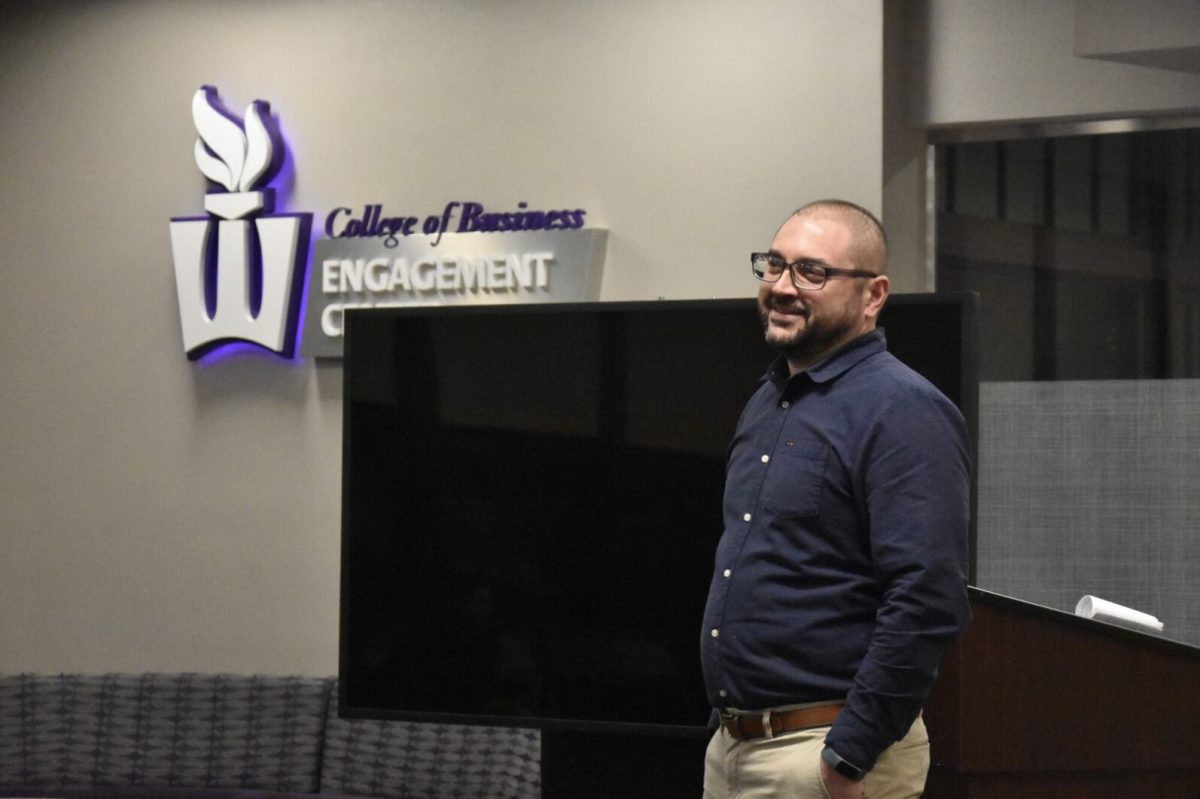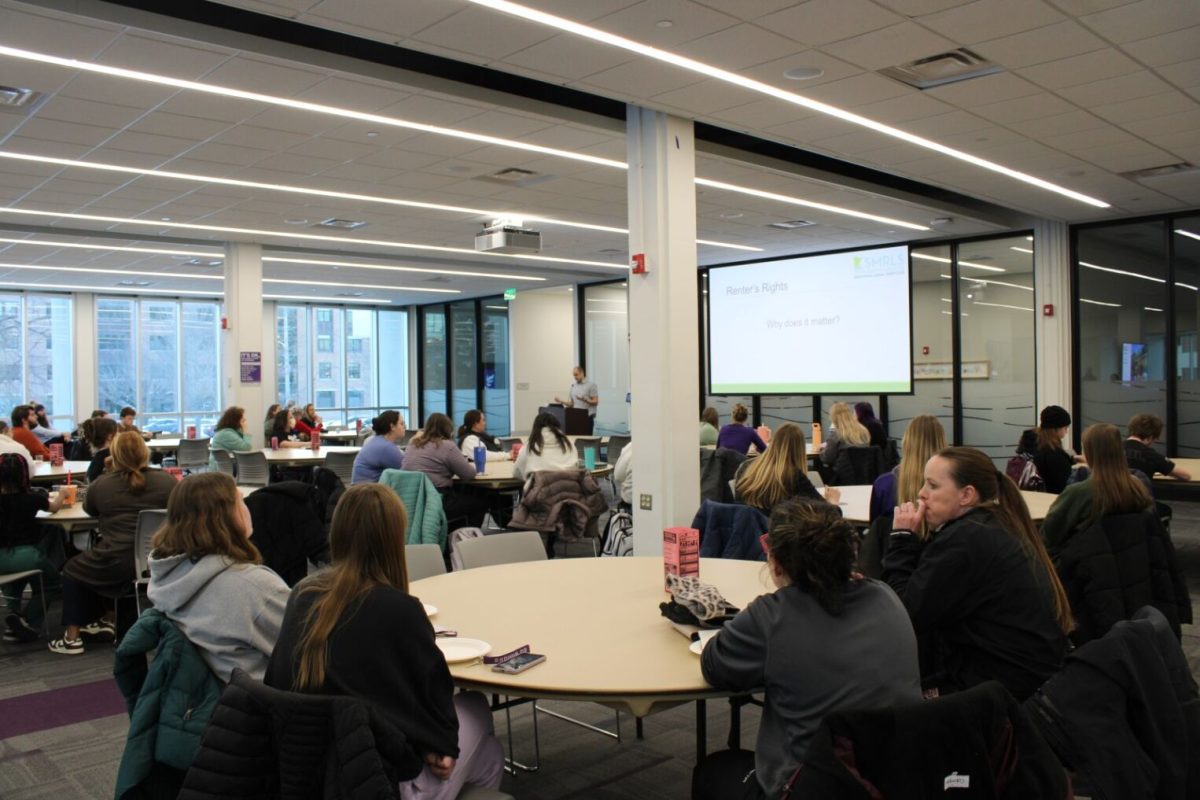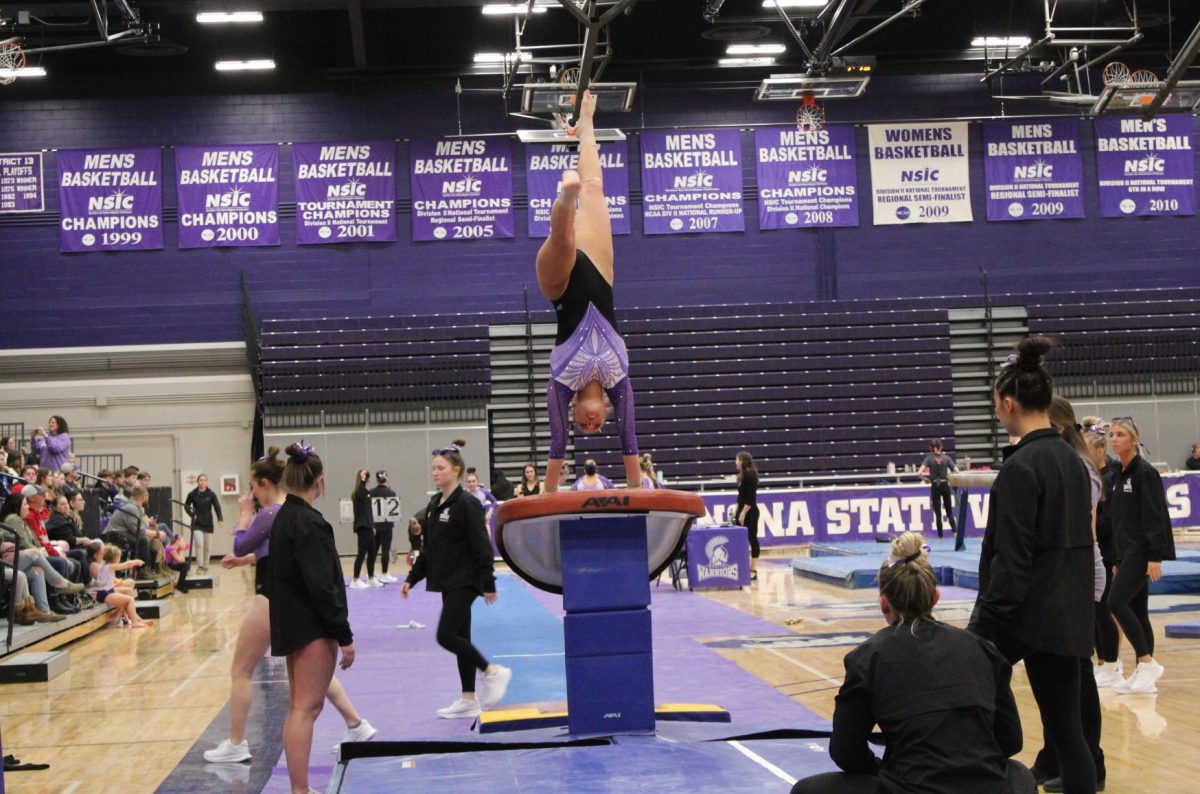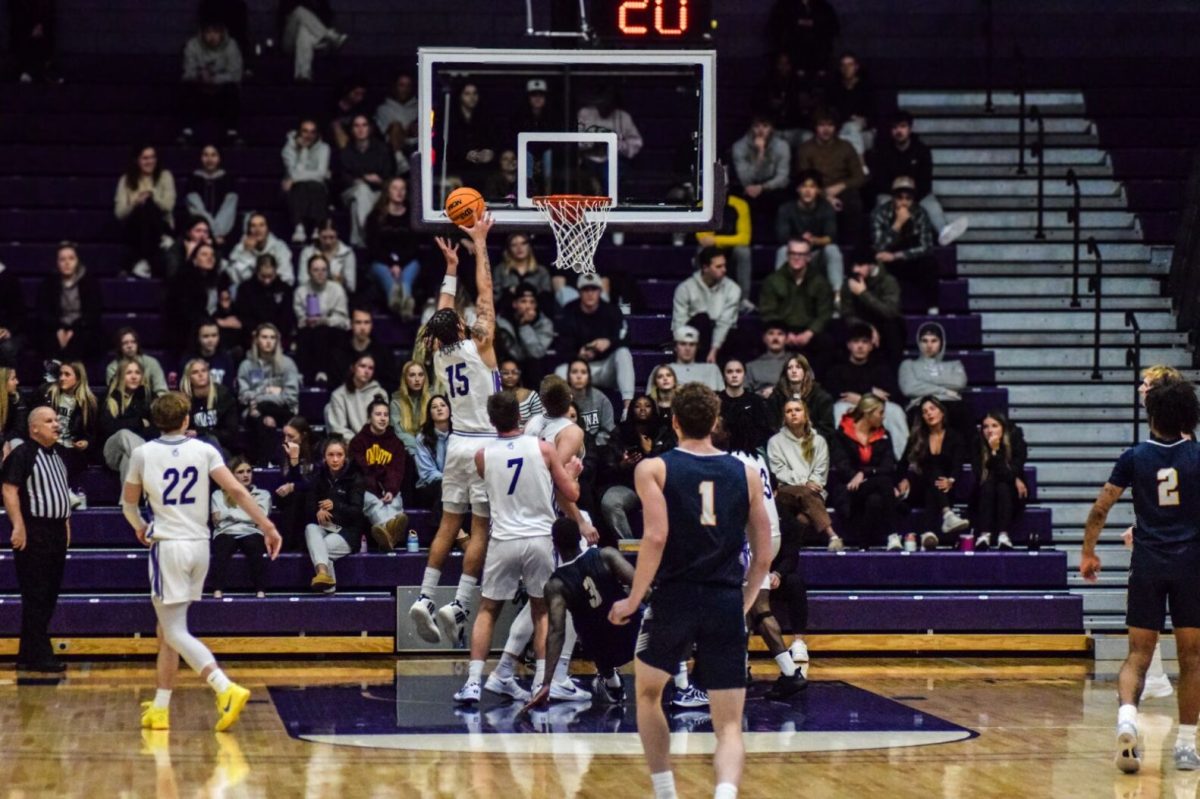Rebecca Mueller/Winonan
A typical college student is thought of as an 18-24-year-old. This stereotype applies to a large portion of Winona State University’s student body, however Winona community members, senior citizens, and WSU retirees, who attend non-credit classes through Senior University at the WSU Retiree Center, make up another demographic.
Senior University students are mainly senior citizens and retirees, but any community member can attend a course regardless of age. Class sizes may range from as few as four or five students to as many as forty students in a given class, depending on interest.
“We never turn anyone down,” said Ann Kohner, Interim Director of the Retiree Center. The program attracts community members in Winona and the surrounding communities.
Four classes are offered throughout every semester. Each class meets once a week during the day for four to six weeks. A class period may last between ninety minutes and three hours. The registration cost for each class is $40, and the money is used to compensate the instructors. Most classes are held in Maxwell Hall, and several include field trips within the community.
The courses are not for credit, and there are no grades or tests. There are no textbooks, but there are usually readings in the form of short chapters or articles.
“The nature of these courses are usually academic-oriented topics,” said Jim Reynolds, Professor Emeritus of Sociology and co-founder of the Retiree Center. Senior University courses are designed to provide opportunities for lifetime learning, as well as intellectual stimulation and growth. They are not intended as light topics that are simply for entertainment.
The Fall 2012 semester includes courses about biology, politics, religion, and genealogy. The classes are called “Reading the Woods: Four Fall Field Trips,” “2012 Election,” “The Protestant Experiment in America: Themes and Challenges from Colonial to Modern Times,” and “Who Do You Think We Are?”
Retired and current WSU faculty members, as well as experts in a given field, teach Senior University courses. When a course is being designed, the professor must present a syllabus outlining what will be covered each week in class.
“We try to keep a variety (of courses),” said Kohner. No two courses in the same field are offered at the same time during one semester.
In the past, courses about poetry, history, and technology have been offered, and courses about astronomy, philosophy, writing, and jazz are being planned for the Spring 2013 semester.
The program began in the Spring 2009 semester, after Reynolds and the co-founder Ron Stevens were inspired by similar programs at Retiree Centers throughout the country, including one in Ashville, North Carolina. In Ashville, they had the opportunity to sit in on some classes and were very impressed with the caliber of instruction within the program.
Senior University’s goal is to keep retired faculty, staff, and administrators involved with the university through intellectual activities. The program also allows different generations to learn together.
“It keeps our retirees connected to the university,” Kohner said.
Reynolds believes that the program breaks down the stereotypes often associated with senior citizens, in which people become withdrawn and are no longer as active as they once were.
“These people are sharp, these people are interested in learning, these people defy the stereotypes,” he said.
In each class, students are engaged in the discussion and excited to learn. The program is often very well received, as evidenced by the course evaluations students complete at the end of each course and the attitudes of the students in class.
To learn more about Senior University or to register for a course, visit the Retiree Center website online at www.winona.edu/retiree/ or contact retiree@winona.edu.
Contact Rebecca at RMueller08@winona.edu









































